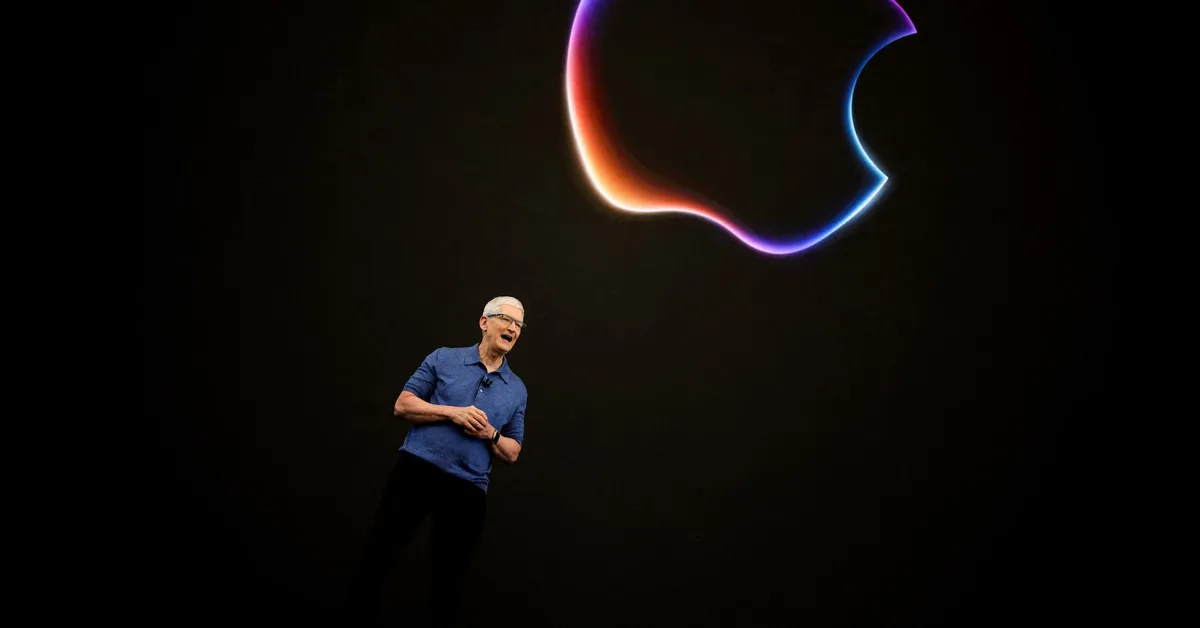
Cupertino, California, June 9 (Reuters) - Apple is currently grappling with an unprecedented array of technical and regulatory challenges as key executives prepare to address attendees at the company's annual software developer conference on Monday. This year's conference comes at a critical time as the company faces scrutiny from regulators and shifts in market dynamics.
On the regulatory front, courts in both the U.S. and Europe are set to dismantle the lucrative barriers surrounding Apple's App Store. This shift has prompted even some of Apple's former allies to question the justification of its fees, raising concerns about the future of the platform. As these legal challenges unfold, U.S. President Donald Trump has also threatened to impose a 25% tariff on Apple's flagship product, the iPhone, adding further pressure on the tech giant.
In light of these challenges, Apple’s shares have experienced a staggering decline of over 40% since the beginning of the year. This downturn is notably sharper than that of competitors like Google and lags significantly behind the AI-driven gains seen in Microsoft’s stock. Investors are closely monitoring how Apple will navigate these turbulent waters during its upcoming announcements.
Despite facing these hurdles, Apple has made some strides in artificial intelligence. The company has launched several AI features it promised last year, including writing tools and image-generation capabilities. However, it still relies on partnerships with entities like OpenAI, the creator of ChatGPT, for certain functionalities. Recent reports from Bloomberg suggest that Apple may open its in-house AI models to developers later this year, signaling a potential shift in its approach to AI development.
While Apple has been concentrating on its high-end Vision Pro headset, priced at $3,500, competitors like Google and Meta have taken the initiative in the smart glasses market. These companies are offering lighter and more affordable alternatives that could leverage AI capabilities to enhance user experience. Meta’s Ray-Ban smart glasses, for example, retail for under $400 and provide basic AI functionalities.
Industry analysts are weighing in on Apple's position in the smart glasses arena. Ben Bajarin, CEO of technology consultancy Creative Strategies, emphasizes that Apple's current offerings are not designed to replace smartphones but rather complement them by providing contextual information through camera input and natural language interaction. However, he notes that Apple is not yet ready to meet the challenge posed by its competitors in this sector.
Anshel Sag, principal analyst at Moor Insights & Strategy, acknowledges that while Meta currently leads the smart glasses market, Google is rapidly closing the gap. He believes that Google's AI capabilities are well-suited for this emerging technology, although both Meta and Google still face limitations in their existing products.
Bob O'Donnell, CEO of TECHnalysis Research, expresses skepticism about the widespread adoption of smart glasses, indicating that it remains uncertain whether consumers will prioritize AI features in their hardware purchasing decisions. He argues that being behind in this area may not significantly impact Apple, as the majority of consumers are not yet focused on cutting-edge technology.
As Apple prepares for its pivotal conference, the tech community remains keenly interested in how the company plans to address these multifaceted challenges and what innovations it will unveil to maintain its competitive edge.